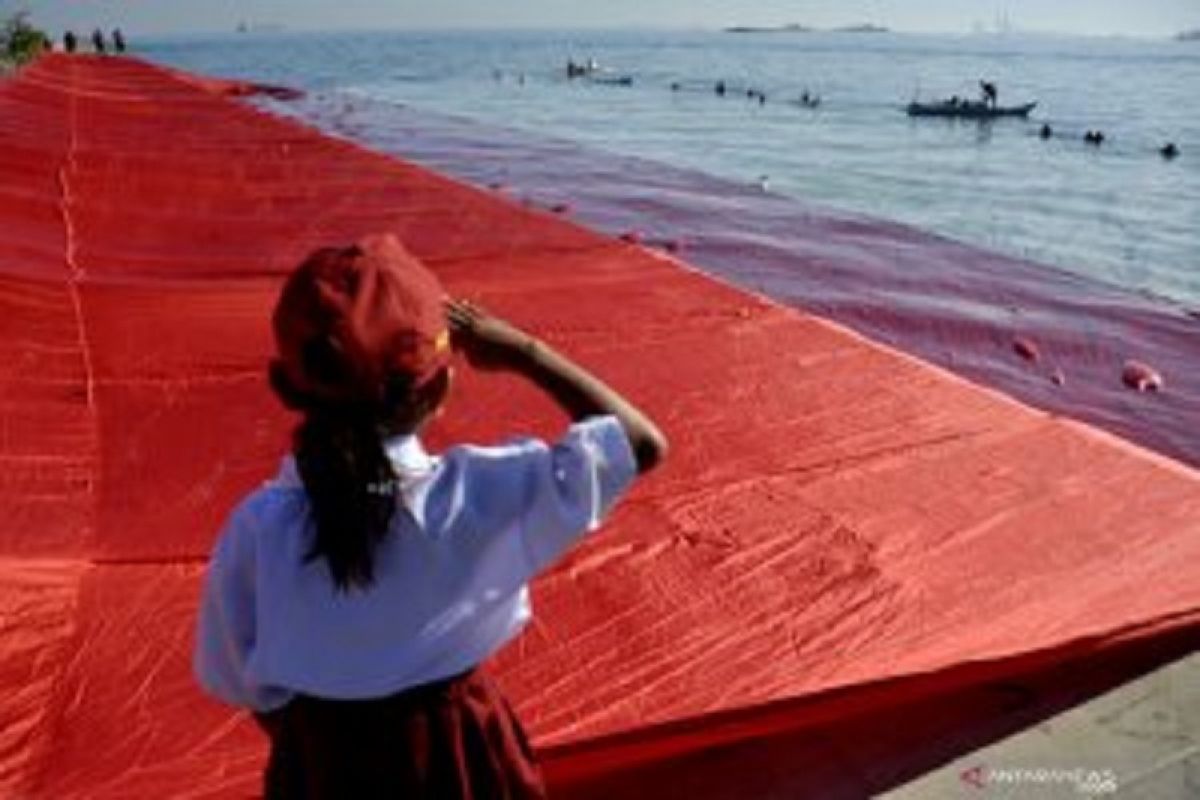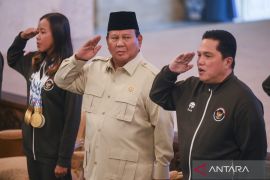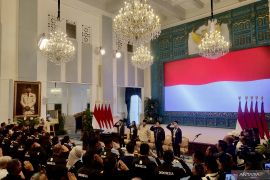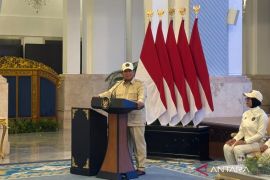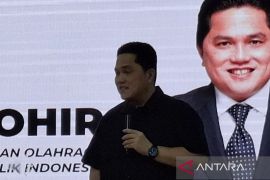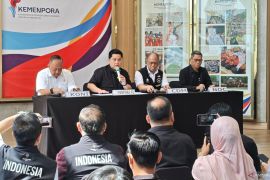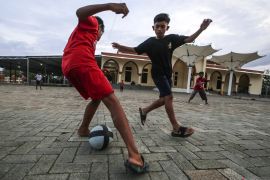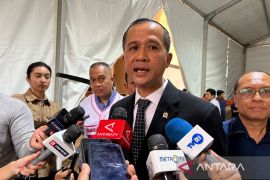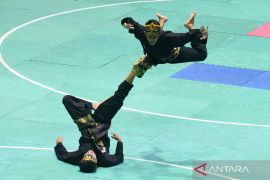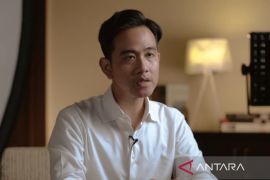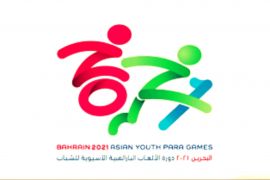One of the aspects of life that has been the most affected by the pandemic has been education, with teaching and learning activities needing to be adapted to meet health protocol standards.
In Indonesia, hybrid distance learning was started on March 24, 2020, or 22 days after the first COVID-19 case was reported in the country.
This year marked the third year since the start of hybrid distance learning.
With the relatively swift shift from in-person learning activities, some issues concerning teachers, parents, and students arose during the new hybrid distance learning activities.
An education expert from the Sahabat Muda foundation, Asep Sapaat, said the hybrid learning system has not been effective.
“If we’re being honest, we’re not ready for hybrid learning amid the pandemic. Even during the pre-pandemic learning condition, there were still obstacles to increasing the student’s level of knowledge, understanding, skill, and attitude. If you asked (me) if it’s ideal or not, it’s definitely not ideal," he explained.
Based on the Ministry of Education and Culture’s report on policy adjustments for learning activities in August 2020, parents, teachers, and students experienced many obstacles in their attempts to adapt to the distance learning system.
One of the biggest problems for parents and teachers was difficulty in supporting students participating in distance learning, which oftentimes is solely focused on the curriculum.
Moreover, according to the ministry’s report, most parents could not accompany their children during learning sessions due to work or other household responsibilities.
The report also stated that the students experienced the biggest obstacles. They had problems concentrating, complained about the difficulty of questions set by their teachers, and reported feeling increasingly stressed out due to isolation.
Such isolation has the potential to cause anxiety and depression, especially in teenagers.
Fortunately, this year—when Indonesia commemorates its 77th anniversary of independence—the country has relaxed more COVID-19 restrictions, enabling youths to return to learning activities in physical classrooms.
Based on the Ministry of Education and Culture’s Circular No.4 of 2020 regarding the implementation of education policies during the COVID-19 emergency, starting from January this year, schools in “green or yellow” (with fewer COVID cases) zones have been allowed to reopen and conduct in-person learning.
Some schools have been allowed to operate at 50 percent capacity and effectively split classes into two sessions, one in the morning and one in the afternoon, to ensure physical distancing.
Public Junior High School 99, which is located in the yellow zone of North Jakarta, has been allowed to reopen with full capacity in-person learning.
However, teachers in the school said that some students are still facing obstacles in following in-person learning after two years of online learning.
Febriana Eka Putri, a high school teacher, said that hybrid learning has a couple of glaring issues, which affect a student’s academic achievements and social life.
“Regarding effectiveness, our learning system is still quite lacking, especially when students have experienced distance learning for two years. Some of them were distracted from having to help their families at home,” Putri added.
She also spoke about the socio-emotional impact that students suffered from isolation as they could not directly interact with their friends for two whole years.
In-person learning activities amid the still ongoing pandemic might be less than ideal, but that has not affected the spirit of some students to adapt and develop themselves positively in their spare time.
For example, Naura Salsabila Setiawan, or simply Caca, is a 14-year-old who was in the 7th grade when the school transitioned to distance learning.
Back then, the school only lasted five hours, giving her ample spare time that she used to teach her classmates mathematics through a WhatsApp group chat.
Nowadays, Caca uses her spare time to take at least three hours of extra lessons outside of school from Monday to Thursday to boost her academic record.
"For extra lessons, I do it because I know it’s what I need to get the result that I want. I also want to learn more, but not everything is explained in detail during class,” she explained.
Caca also uses her spare time to tutor struggling classmates. “If they understand (the lesson) after I teach them, it makes me happy since I get to share my knowledge,” she said. Last year, Caca managed to teach math to her classmates using a group chat that consisted of around 30 students, so she did not have to clear their doubts individually.
For two semesters, she served as her classmates’ math tutor. She taught them through videos that she recorded from her phone.
Zahra Putri Suryana (12), another high-spirited student, uses her spare time to develop herself by participating in extracurricular activities and competitions, particularly martial art.
Zahra is a Pencak Silat athlete who has chosen to spend her leisure time pursuing her martial art hobby amid the pandemic.
From Monday to Friday, the 7th grader spends 2 hours every day in physical training and another 4 to 5 hours in academic studies.
While there is a ban on in-person extracurricular activities, the competition in which Zahra participated was organized online.
Despite being an athlete since third grade and qualifying for the state’s Sustainable Achievement Sports Coaching program, Zahra is still prioritizing her education.
“Education is important for all of us. That is why my education comes first and my hobby comes second,” she said.
Zahra also informed that her parents constantly remind her that education must be her first priority.
Meanwhile, 14-year-old water polo talent Rara Anggriani Djatinegara is slightly different from Zahra: she has chosen to go all in on her training.
Every Monday to Saturday, the 8th grader trains for several hours.
“My hobby has always been to exercise, and I’m happy playing water polo. The sport isn’t boring so I’m fine with the intense training, even if it does make me feel tired at school since I come back home at midnight,” Rara remarked.
Whenever Rara trains on the weekdays, she gets only 5 hours of shut-eye before waking up at 5 a.m. to go to school.
Rara said that her teachers are very supportive of her and sometimes let her sleep in class. “My teachers know I’m an athlete and know my training schedule. Some teachers might complain, but it is only sometimes,” she added.
However, she said that she often feels guilty about how teachers have always supported her non-academic endeavors wholeheartedly. “I know it’s wrong for me to sleep in class, but I’m exhausted too,” she added
Now, for almost two years, Rara has taken specialized extra lessons for athletes outside of school to catch up with her academic studies.
When asked about the ideal teaching-learning activity she expects in the near future, Zahra expressed the hope that she would get more time to study and interact with her friends at school when the pandemic is over.
“When the pandemic is over, I hope we can share our experiences and talk in person. I have a hard time learning at home, too,” she remarked.
Similarly, Caca also expressed the hope that the current in-person learning activity will stay for good. “I think it’s perfect. I can ask the teacher immediately if I have a question, no more waiting or having bad (Internet) connections. The lessons can also be explained better and clearer without any (online) interference,” she explained.
As for Rara, she said she hopes only for more supportive teachers.
Indonesian youths are making varied choices and using different ways to learn and develop positively.
This positive spirit is what is expected from the youth in fulfilling independence and building a more resilient Indonesia.
Related news: Govt should monitor offline learning to prevent acute hepatitis: DPR
Related news: Offline learning should prioritize health of students, teachers
Editor: Rahmad Nasution
Copyright © ANTARA 2022
